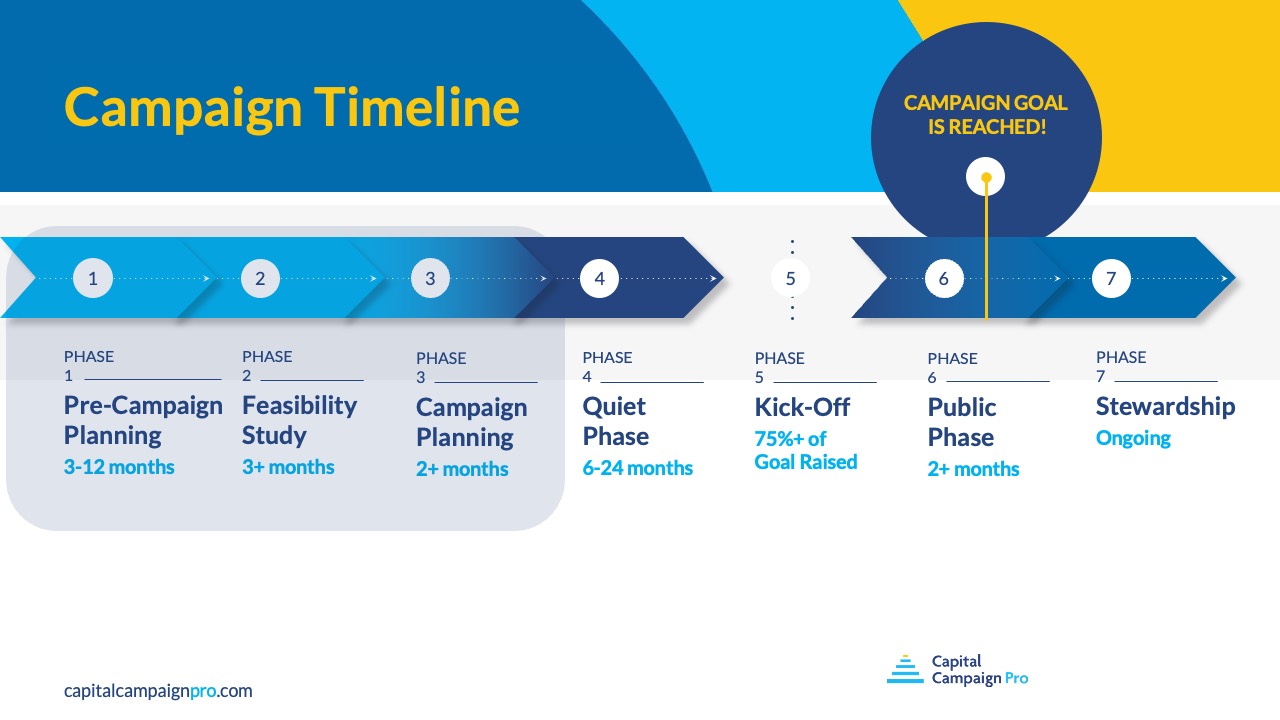Preparing Your Board for a Capital Campaign in Two Stages

This post highlights the wisdom that Capital Campaign Pro advisor, Xan Blake, about boards of directors and the important roles they play in capital campaigns. Xan joined Capital Campaign Pro Co-Founders, Amy Eisenstein and Andrea Kihlstedt in a lively exploration of this critical topic.
This is the sixth and final post drawn from discussions with our campaign experts. A full audio discussion of the topic has been recorded for the podcast, All About Capital Campaigns, which you can listen to on your favorite podcast platform.
What do you think your board members are most worried about as you move toward a capital campaign?
I’ll bet these three topics rise to the top of most of your board members worries.
- Will our capital campaign succeed?
- What’s going to be expected of me?
- How much will I have to give?
These concerns are perfectly natural. If the campaign doesn’t succeed, board members know that they’ll be stuck with a project that’s not tenable and serving on the board of an organization that may be in trouble. No board member wants that!
And chances are good that very few of your board members have ever been through a capital campaign and they probably have a limited understanding of what it will entail. They probably worry about whether they’ll be expected to ask their friends and relatives for money. And the very thought of that gives most of them hives.
Finally, most board members have an inkling that they’ll be expected to make a gift to the campaign but they have little idea of how much they might “be on the hook” for. And some board members for whom resources are scant, may be quite anxious that they’ll be asked to give at a level that’s far beyond their means.
Two Stages of Board Preparation
Our expert campaign advisor, Xan Blake, suggests board involvement in two stages:
- Learning
- Participating
Learning Mode
During the first three phases of your campaign, Xan says, your board should be in learning mode.

During the Pre-Campaign Planning, Feasibility Study and Campaign Planning phases, board members are soaking up information both about how capital campaigns work and about their organization.
Participation Mode
Then, as the campaign moves into the quiet phase of the campaign, board will begin to actively participate in the campaign.

During these phases, board members will help organize various aspects of the campaign, they will advocate on behalf of the organization and the campaign, and they will engage in the fundraising process with their time and contributions.
Establishing Board Member Expectations
When board members understand that they have time to learn and get ready before they’ve got to participate in the campaign, they will be more comfortable with the campaign process and more open to the various opportunities for learning that come early in the campaign.
Now let’s take a closer look at each stage.
Stage 1 – Learning: Training and Gathering Information
When they are in learning mode, board members are discovering both the campaign process itself, and the community response to the project.
Standard ways to teach board members about campaigns include:
- A campaign training conducted by a consultant or advisor
- Guest speakers at board meetings who have been through campaigns
- Webinars, articles and e-books about campaigns
The more your board members understand what’s involved in a capital campaign, the better. So early in the campaign process, you should develop a plan for training and preparing your board.
As board members learn about capital campaigns and how they work, they will also learn what will be expected of them as the campaign moves forward.
The early phases of the campaign also provide excellent opportunities for board members to become involved in planning and testing. Board members should be asked to participate in committees that are developing plans for the project, overseeing the feasibility study, and talking to people in the community about the plans to gather reactions and insights.
When board members are involved in the external learning process, they become familiar and comfortable with the project plans. And, of course, that familiarity sets them up to be more actively involved in the campaign during the later stages.
Stage 2 – Participating: Advocating, Organizing and Engaging
Once the campaign moves into the Quiet Phase, board members will be ready to participate more actively. That does NOT mean that every board member must solicit gifts or ask their friends for money. But every board member should play an active role in the campaign.
Board members should serve on campaign committees and there are many opportunities for that. They might serve on the campaign steering committee or a cultivation committee or a committee that works on communications, to name just a few.
Board members should also advocate on behalf of the organization and the campaign whenever they have a chance. By telling their friends and acquaintances about the campaign in social settings, they sow seeds of excitement that will set the campaign up for success.
And finally, board members should participate actively in the fundraising itself. Keep in mind that only one piece of the fundraising is asking for gifts. Most of the work is in identifying, researching and cultivating donors. Board members might also help with thanking and stewarding donors who have already made gifts.
In this aspect of their work, board members will be asked to make a personally significant gift.
That is, every board member should make a gift that models the generosity they hope other people will exhibit when they make their gifts to the campaign.
A Prepared Board is a Willing Board
Early in your campaign planning process, develop a plan that will help your board members know what will be expected of them. Break the process into two sections — learning and engagement.
Let your board members know that they will learn and become confident about the campaign before they will be asked to actively engage in the fundraising process.
Remember that most of your board members have had limited experience with capital campaign fundraising. Therefore, the more you can do to put them at ease, the more effective they are likely to be during your campaign.
For the full conversation, listen to the full discussion here. And check out the All About Capital Campaigns Podcast on your favorite podcast platform.



Leave a Comment